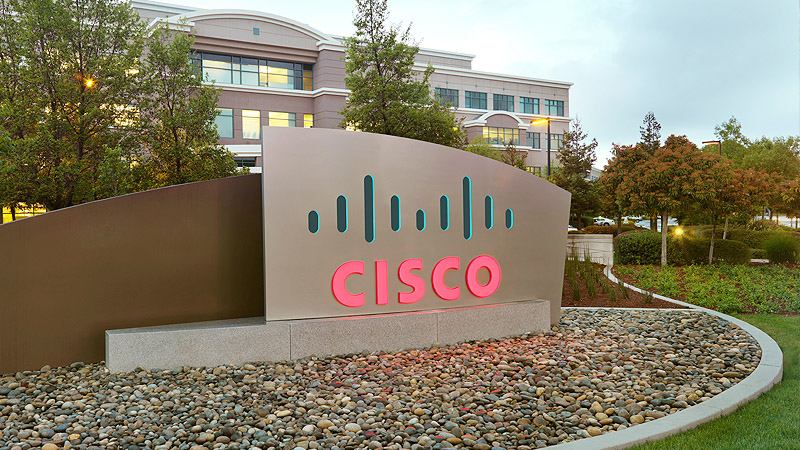Sao Paulo, Brazil, December 8, 2015 - SLC Agricola, a Brazilian agricultural commodities producer, has adopted Cisco® collaboration technology to upgrade its communication infrastructure. The company deployed Cisco IP Phones, video conferencing solutions and instant messaging applications to connect its headquarters and 14 production sites. Benefits from the technology adoption include reduced phone and transport costs in addition to improved communications and improved staff productivity.
Founded in 1977 by the SLC Group, SLC Agricola was one of the first Brazilian companies focusing on the grains and cotton sector to be listed on the stock market, becoming a benchmark in the segment. The company operates 14 farms across six Brazilian states and is in constant expansion, so the old telephony platform became saturated. In addition, many of the production facilities are located in remote places, so the difficulty in deploying terminals and maintaining the analog system became costly and counterproductive.
The Cisco’s partner Infra TI led the telecomm integration project, and after a complete assessment on the entire SLC Agricola environment, it designed the migration plan to the IP system. The first step was carried out at SLC's headquarters in Porto Alegre, by implementing Cisco CallManager servers and more than 200 user extensions. Two service portfolios were built: a standard one with Cisco Unified SIP Phone 3905 units for the staff; and another one for managers and heads of departments, with Cisco Unified IP Phone 8945 capabilities, including quick-start videoconferencing.
The Cisco Jabber® application, which allows combined instant messaging (IM), voice and video, and Cisco Expressway were also implemented to support the use of mobile devices without a VPN.
"The new platform has greatly contributed to reduced costs and streamlined production, and we have several examples to prove it," said João Aranda, telecom coordinator at SLC Agricola. "To name one, when the SLC’s presidential staff was visiting a distant farm, they were able to attend an urgent meeting through Cisco video conferencing, saving time and travel costs, and avoiding any damage to the decision-making process," he said.
"Collaboration solutions have a special application to agribusiness," said Ana Claudia Plihal, commercial director at Cisco. "IP technology has the power to eliminate the excessive cabling of conventional telephony, simplifying the operation in remote environments. At SLC, for example, the new system will not interfere in the farm’s infrastructure. It’s a simple case of plugging new phones to the gateway of each area," she said. "Moreover, the opportunity to have video conferencing available anytime not only adds value to the company but also offers the business an innovative profile."
The SLC Agrícola project started in 2014, and today all farms already have at least one video conferencing unit installed. Additional benefits highlighted by the project team include simplified management and changes in the corporate culture, which directly influenced the decision-making process.
Aranda added that savings made at the headquarters, production units and by the organization’s executives with reduced phone and travel costs were not calculated yet; however, the results achieved with the new IP technology are significant. "We have certainly had considerable gains…. As an example, many of our internal processes are now available via IP telephony, such as staff training and the organization’s trainee program.” SLC Agricola’s telecommunications upgrade is expected to be completed within two to three years.
About SLC Agricola
SLC Agricola, is an agricultural producer, focusing mainly on cotton, soybeans and corn. The company operates 14 farms strategically located in six Brazilian states totaling 343.6 thousand hectares in the 2013/14 marketing year, and a forecast of planted area of 370.1 thousand hectares for the 2014/15 crop, being 206.9 thousand hectares planted with soybeans, 98.6 thousand with cotton, 43.1 thousand with corn, and 18.1 thousand hectares with other crops such as coffee, wheat, corn seed and sugarcane. The company’s business model is based on a large-scale, modern production system, with standardized production units, leading technology, strict cost controls, and environmental responsibility.
About Cisco
Cisco (NASDAQ: CSCO) is the worldwide leader in IT that helps companies seize the opportunities of tomorrow by proving that amazing things can happen when you connect the previously unconnected. For ongoing news, please go to http://thenetwork.cisco.com.
# # #
Cisco and the Cisco logo are trademarks or registered trademarks of Cisco and/or its affiliates in the U.S. and other countries. A listing of Cisco's trademarks can be found at www.cisco.com/go/trademarks. Third-party trademarks mentioned are the property of their respective owners. The use of the word partner does not imply a partnership relationship between Cisco and any other company.




